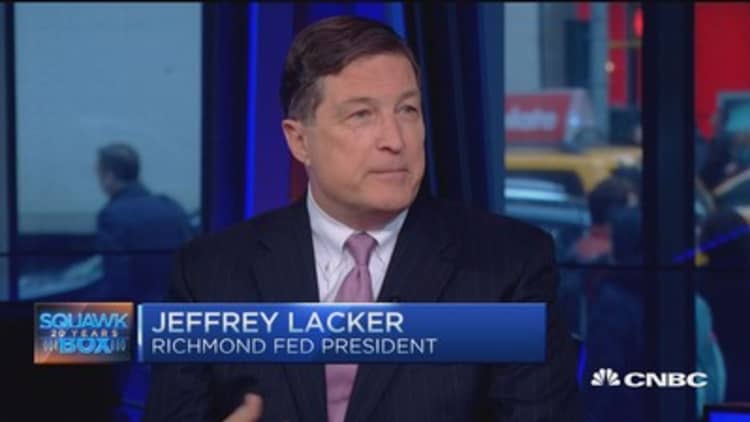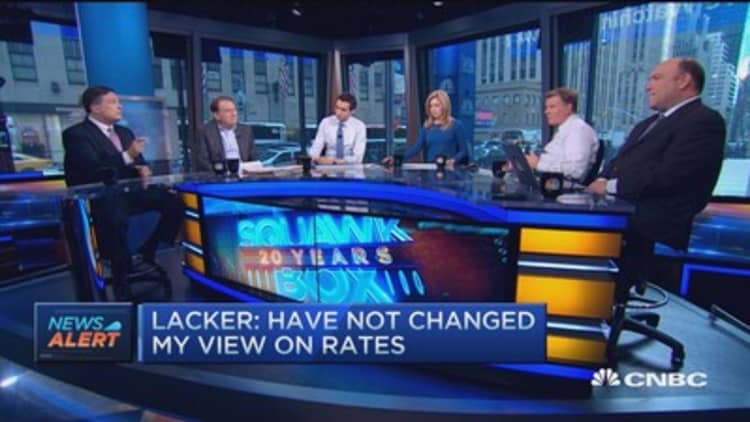
Some lawmakers want legislation to audit the Federal Reserve, but such a move would break down the important "insulation of short-term political dynamics" needed to craft effective monetary policy, Richmond Fed President Jeffrey Lacker said Wednesday.
Appearing on CNBC's "Squawk Box," Lacker said such a requirement of the Fed would be a "mechanism for high-frequency harassment" because it would allow lawmakers to "ask for an audit immediately after an FOMC meeting."
While mindful of the need for transparency, Lacker said that "a little bit of a buffer is very important."
Read MoreYellen: Proposed Fed law would be 'grave mistake'
As for any economic impact of the Paris terror attacks, he said it would likely be temporary, and he has not changed his view that the central bank should be increasing interest rates.
"We've been through episodes like this before in which some disruption of a certain geopolitical or military nature affects things. For a time people can get cautious and pull back a little bit. These tend to be transitory," Lacker said." He spoke ahead of the afternoon release of the minutes from the Fed's October meeting.
Read MoreFed's Evans: We may be ripe for rate hike, but…
Fed policymakers held interest rates steady last month but left the door open for a December hike, which would be their first rate hike in nine years, provided the economic data continued to cooperate.
Lacker, a voting member of the Federal Open Market Committee this year, was the lone dissenter last month, saying the economy was strong enough to handle a rate increase. He was also the only dissenter at the FOMC's September meeting, which saw the Fed keeping rates steady, in part because of global growth concerns sparked by China.
Making his case for a hike, Lacker said consumer spending growth has been "exceptionally strong."
"It's been over 3 percent for two years now," he said, "suggesting the economy needs higher real interest rates." He characterized that as a "fundamental building block" of economic models.

The willingness of consumers to spend more is due to the improvement in the job market, which has been "quite substantial," he said. "I don't see slack in the labor market. I think we are in confidence bounds of every estimate I've ever seen of full employment or maxium employment."
Read MoreFear of earnings downturn grows with terror concern
He expects inflation to reach 2 percent, the Fed's target pace for considering whether to increase interest rates.
Lacker dismissed the idea that low rates for too long may be forcing people into riskier investments than they would otherwise be making. But he warned, "There's a chance, I think it's raising that we're going to get behind the curve" if the Fed waits much longer to act.
"I don't see anything that I would call a bubble, ... of something that is going to go down real soon," Lacker said of the banks he supervises.


